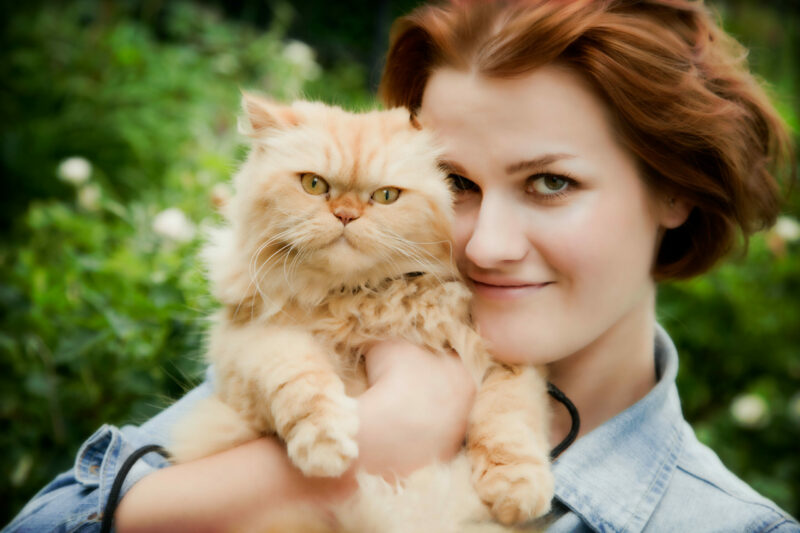
Purr Therapy
For all those cat lovers, Scientific studies have revealed why the cats’ purr has therapeutic powers.Since ancient Egypt, it was considered healthy to have cats close by humans. However, it was only in the last decade that it was demonstrated how the cat’s purring sound influences the human body. The cat’s purr calms and drives away depressive thoughts. Also, it cures sleep disorders and regulates metabolic activity.
The French veterinarian Jean-Yves Gauchet explored extensively the benefits of purr therapy. In April 2002, he came across a study published by “Animal Voice”. (An association that investigates animal communication).
Some of the article’s statistics sparked his interest: it turns out that following injuries or fractures, cats have five times fewer sequels that dogs and recover three times faster. The hypothesis put forward by specialists is that the cat’s purr has restorative properties. Cats not only “vibrate” or “purr” when joyful, but also do so to relieve intense stress.
Gauchet decided to test the hypothesis in humans. He recorded a 30 minutes CD with cat’s purrs and recruited 250 volunteers who would be willing to listen to the full recording.
The study results were positive. All the subjects reported feelings of well-being, serenity, and easiness to fall asleep.
The explanation put forward is that the cat’s purr is a low-frequency sound vibration (25 to 50 hertz), which turns out to be the same frequency range used by kinesiologists, orthopaedics and sports physicians to repair cracks in the bones, relieve muscle injury and speed healing.
What happens in our body? Fairly simple: to “hear and feel” the purr, the stimulus travels through the hippocampal circuit to the amygdala. That sound frequency triggers the production of serotonin, the “happiness hormone”, which is also related to sleep cycles, libido and good mood.
If cats purr to heal, to soothe and increase their comfort, why do they purr when we pet or cuddle them in our lap? Many Vets think that cats understand that a calm and serene person will be more attentive to their needs.
So, underneath the stereotyped idea of cats (or dogs) offering altruistic love, there is also a relationship of convenience and survival.
Generally speaking, pets link us in a different way to the world and ourselves. They drive off dark thoughts and reduce anxiety. This is primarily due to physical contact. Cats, in particular, have a sort of magnet for caresses. This is why many therapists who work with animals claim that we approach them to find emotional wholeness.
In the city of Tokyo is very expensive to have pets. Furthermore, in some buildings, this is prohibited, for hygienic reasons. This is why “cats cafes” have become fashionable, where Japanese patrons go to relieve stress and relax in the company of the Pussycats. There are only two rules: the cats can not be forced to be petted and no children are allowed on the premises.

